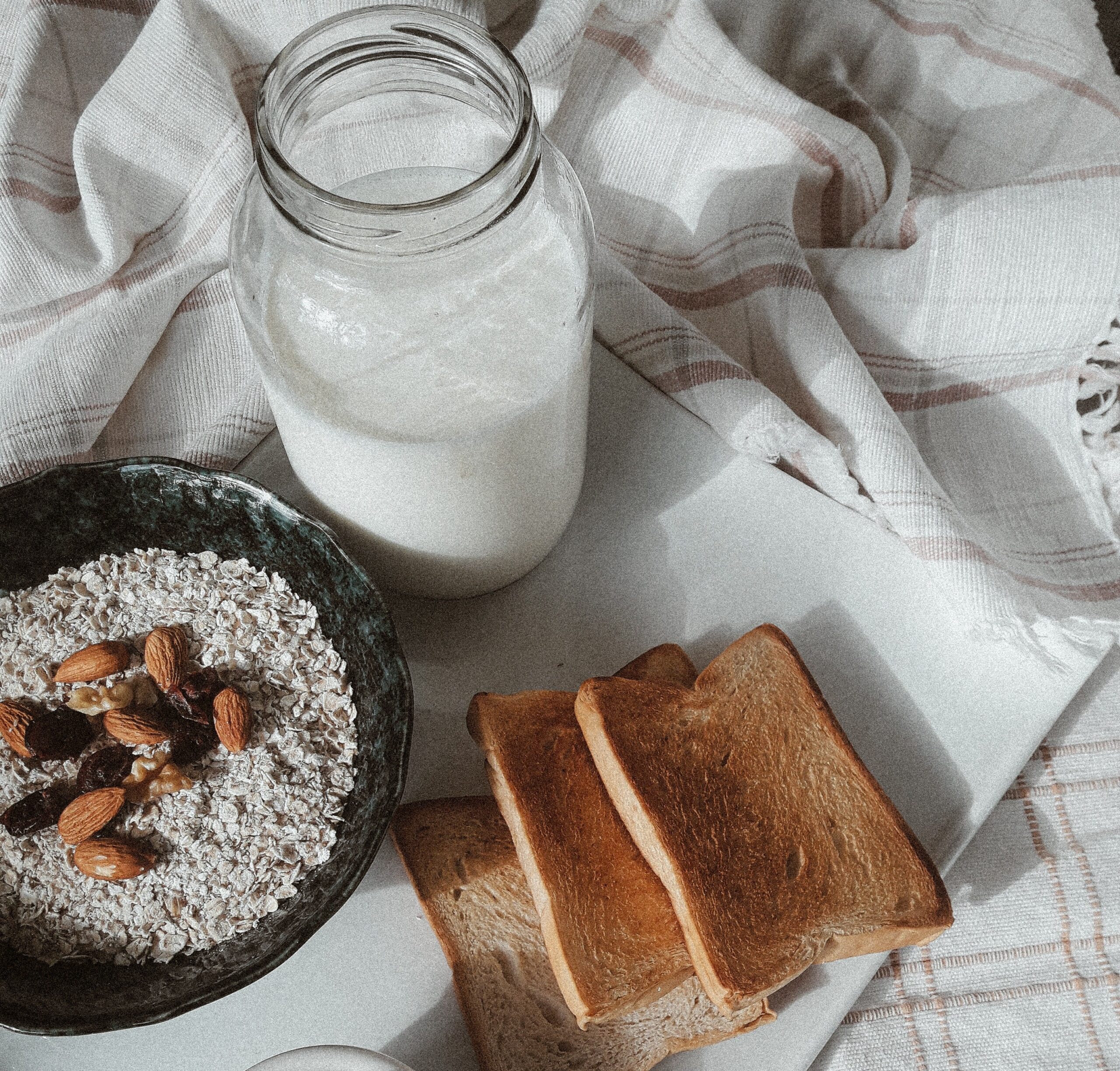
Introduction: While many people focus on weight loss, there are individuals who struggle to gain weight in a healthy way. For healthy weight gain, we will explore various foods that can help you reach your weight gain goals while ensuring you do so in a healthy manner. Whether you’re recovering from an illness, aiming to build muscle, or seeking to achieve a healthier body weight, a well-planned diet plays a crucial role. It is important to consult with a healthcare professional or a registered dietitian before making any significant changes to your diet.
Below should also answer various questions like:
->How can I gain 10 kg in a month?
->Can I gain 5 kg in 1 month?
->Which food or fruit is best for weight gain?
- Calorie-Dense Foods: To gain weight, you need to consume more calories than you burn. Incorporating calorie-dense foods into your meals can help you achieve the necessary calorie surplus. Choose nutrient-dense options that offer additional benefits alongside calories. Here are some examples:
- Avocados: Rich in healthy monounsaturated fats, avocados provide about 240 calories per fruit. They also offer dietary fiber, vitamins, and minerals.
- Nuts and Nut Butter: Almonds, walnuts, cashews, and natural nut butter variants are excellent sources of healthy fats and calories. They also contain protein and essential micronutrients.
- Whole Milk and Dairy Products: Full-fat dairy products like whole milk, yogurt, and cheese are high in calories, protein, and calcium. Opt for options without added sugars.
- Healthy Oils: Cooking with healthy oils like olive oil, coconut oil, and avocado oil can help boost your calorie intake. These oils also provide additional nutrients and promote heart health.
- Protein-Rich Foods: Protein is essential for muscle growth and repair. Including protein-rich foods in your diet can support healthy weight gain while building lean muscle mass. Choose the following protein sources:
- Lean Meats: Chicken, turkey, lean cuts of beef, and pork are excellent sources of high-quality protein. They also offer essential amino acids and iron.
- Fish: Fatty fish such as salmon, tuna, and mackerel not only provide protein but also supply omega-3 fatty acids, which offer various health benefits.
- Eggs: Whole eggs are packed with protein, healthy fats, vitamins, and minerals. Include both the egg white and yolk to benefit from all the nutrients.
- Greek Yogurt: Greek yogurt is a protein powerhouse that also contains probiotics, which promote gut health. Opt for plain varieties and add fruits or honey for flavor.
- Complex Carbohydrates: Carbohydrates provide energy for your body. Focus on incorporating complex carbohydrates into your meals as they offer a steady release of energy and are packed with essential vitamins and minerals. Include the following options:
- Whole Grains: Oats, brown rice, quinoa, whole wheat bread, and pasta are excellent sources of complex carbohydrates. They also provide dietary fiber for digestion.
- Sweet Potatoes: These nutritious tubers are rich in carbohydrates, dietary fiber, vitamins, and minerals. Enjoy them baked, roasted, or mashed.
- Fruits: Include a variety of fruits in your diet to benefit from their natural sugars, vitamins, and antioxidants. Opt for bananas, mangos, and grapes for higher calorie content.
- Healthy Fats: Healthy fats are an important part of a weight gain diet due to their high calorie content. They also offer numerous health benefits and support nutrient absorption. Include the following sources:
- Avocados: In addition to their calorie content, avocados provide healthy monounsaturated fats, dietary fiber, and vitamins.
- Nuts and Seeds: Almonds, walnuts, chia seeds, flaxseeds, and pumpkin seeds are rich in healthy fats, protein, and essential micronutrients.
- Olive Oil: Incorporate olive oil into your cooking and salad dressings. It contains monounsaturated fats and antioxidants that promote heart health.
- Fatty Fish: Salmon, mackerel, and sardines are not only rich in omega-3 fatty acids but also offer a good source of calories and high-quality protein.
- Snacks and Calorie-Boosting Additions: Including snacks and calorie-boosting ingredients in your meals can significantly increase your overall calorie intake. Here are some ideas:
- Trail Mix: Create your own trail mix using nuts, dried fruits, and seeds. It’s a convenient and calorie-dense snack.
- Energy Bars: Opt for homemade or store-bought energy bars that are high in calories, healthy fats, and protein.
- Granola: Sprinkle granola on top of yogurt, smoothies, or oatmeal to add extra calories and texture.
- Cheese: Add shredded cheese to your meals or snack on cheese cubes for an additional calorie and protein boost.
- Balanced Meals and Regular Eating: To promote healthy weight gain, focus on consuming balanced meals that include a combination of protein, carbohydrates, and healthy fats. Aim for three main meals and two to three snacks per day. Include a variety of foods from different food groups to ensure you’re getting a wide range of nutrients.
Conclusion: Gaining weight in a healthy manner requires a well-rounded approach to your diet. By incorporating calorie-dense foods, protein-rich sources, complex carbohydrates, healthy fats, and smart snacks, you can achieve your weight gain goals while ensuring your body receives essential nutrients. Remember to maintain consistency, combine your dietary changes with regular exercise and strength training to build muscle mass, and seek personalized guidance from healthcare professionals to ensure your weight gain journey is safe and effective. Patience, perseverance, and a positive mindset are key to achieving your desired weight goals.
